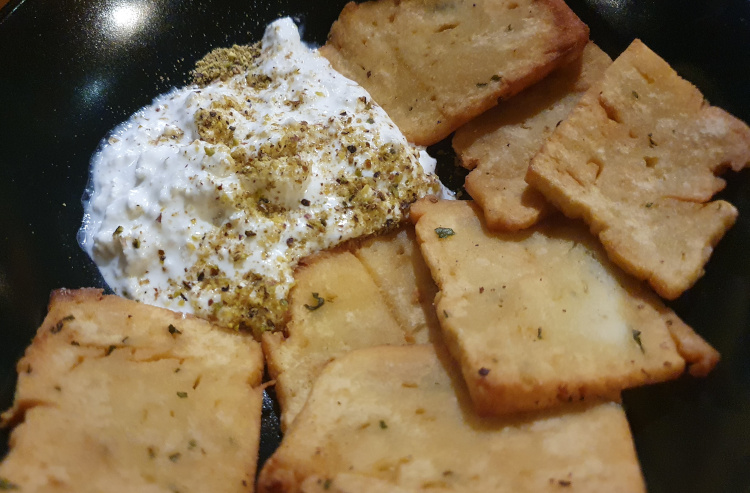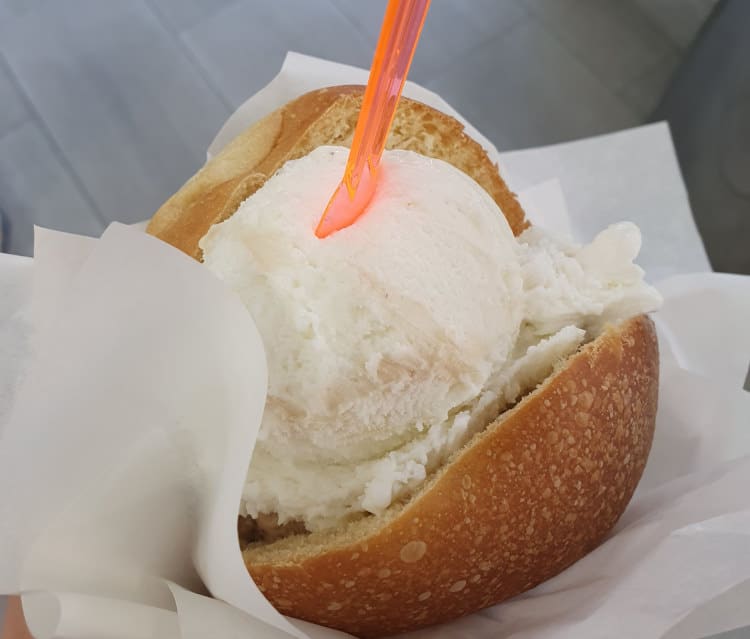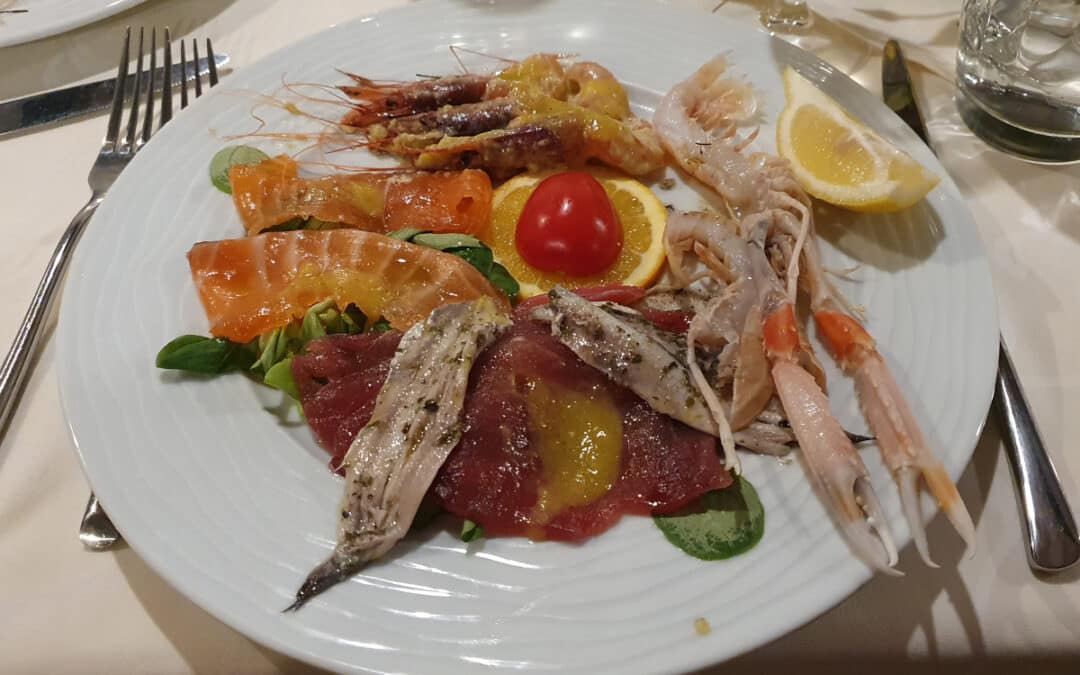A round trip for all the senses
Sicily, the largest island in the Mediterranean Sea located in the southwest of Italy, is not only home to the highest active volcano in Europe, Mount Etna, but also has impressive cities to offer in addition to beautiful beaches. No matter which side of the island you are on, in each city you will find different influences from different countries and eras. As long and diverse as the history of Sicily is, the culinary diversity of Sicilian cuisine is equally diverse and shows influences from different countries of the Mediterranean.
In addition to typical Italian dishes, you will also find dishes with couscous or dates, for example, especially if you are staying in the west of the island. Thanks to the Arabs, who ruled the island for a long time, these ingredients were in fact imported from Africa in the past and now have a permanent place on Sicilian menus.
Since Sicily was ruled by many other conquerors from different countries in the past, food was also imported from these countries and so it happened that Sicily is probably the most diverse island in the Mediterranean to this day, not only in terms of culture but also cuisine.
Of course, the island’s climate and the sun also contribute a great deal to the intensely flavoured cuisine, as these factors are particularly favourable for the cultivation of fruit and vegetables. Especially around Mount Etna, where the soil is very fertile, you will find countless orange and lemon trees, but also vineyards and forests full of chestnut trees.
We would like to give you some insights into what you should definitely try in the different corners of the island, from north to west. By the way, you don’t necessarily have to eat many dishes in a restaurant, because Sicily has a very distinctive street food culture.
The North Coast, Palermo
So let’s start our little culinary tour with Sicily’s largest city on the north coast of the island – Palermo.
Probably the most common street food dish on the island is the so-called arancini. Deep-fried rice balls that can be shaped and filled differently depending on the region. In Palermo, for example, you will find spherical arancini, while in Catania, for example, they are usually conical. The classic and most traditional filling here is ragù sauce (consisting of tomato, minced meat, peas and onion).
Another speciality and typical street food in Palermo are the panelle, deep-fried slices of chickpea flour. They are classically served with bread: pane e panelle.

For those of you who really want to try something daring, Palermo has pane con la milza, bread with spleen. This dish is typical of the city and its origin is linked to the large Jewish community that once lived in Palermo. The people of this community were usually employed in the butcher’s shop and their main source of food was the parts of the meat that the butcher could not use. For many locals, this dish is still the alternative to a fast food burger.
One dessert not to be missed here is the cannoli. A tubular, crispy fried wafer filled with sweet ricotta cheese or chocolate chips and decorated with candied orange peel or chopped pistachios, there are no limits to your imagination.
Specialities of the East Coast
Let’s move from the north coast of the island to the east coast, where the big city of Catania awaits us with its culinary delights.
First of all, there is the traditional pasta dish – Pasta alla Norma. The basis of this recipe is usually macaroni in an interplay with aubergines, tomatoes, fresh basil and ricotta salata, the typical Sicilian sheep’s cheese. This dish was named after the opera Norma by the composer Bellini, who was born in Catania.
You should also eat fish in Catania and its surroundings, because the city has the largest and most famous fish market of its kind and the fish dishes in the restaurants are unbeatable in terms of freshness.
For the more daring among you, we have a tip – just as there was pane con milza in Palermo, there is of course also a traditional meat dish in Catania. Horsemeat is the preferred meat here, and it comes in many different varieties. From wafer-thin slices – fettine di carne di cavallo, to salsiccia stuffed with horse meat, to polpette (meatballs).

Street food from Catania
The most typical dessert in Catania is probably granita. A snow-like water ice, which is mixed with fruit pulp, almond milk or espresso and is often eaten for breakfast with a warm brioche.

Even normal (milk) ice cream is eaten here with pleasure in the brioche!
The cuisine of the south
On our expedition for the palate, we continue to the south of Sicily. Particularly well-known and worth trying are the so-called scacce, baked focaccia with various fillings such as aubergines, tomatoes, sausages and much more, which are especially common in Ragusa and Siracusa.
Siracusa and the Iblei Mountains in particular are known for their excellent dairy products such as ricotta, primosale and the Provole and Caciocavallo cheeses, which are usually served as an appetiser.
Furthermore, there is also a typical pasta dish in the region of Siracusa – pasta alla siracusana prepared with garlic, anchovies and breadcrumbs.
A dessert, or rather a sweet, that we don’t want to deprive you of is Cioccolato di Modica, the chocolate from the Sicilian town of Modica in the south-east of the island. This chocolate is made cold and not conched like the usual chocolate. Again, you can see the influence from another country, as the recipe comes from the Count of Modica from Spain.
The West of Sicily
Our culinary tour ends in the west of Sicily. Here we find the Arabic influences in particular. For example, couscous is a traditional dish for the province around the city of Trapani and is therefore also called Trapani-style couscous. It is traditionally prepared with fresh Mediterranean fish, but can also be found in many other variations in this region and is practically not missing from any menu.
The most typical dessert of the Trapani region is the Cassatelle Trapanesi, dumplings filled with sweet curd cheese and chocolate chips.
As you can see, not only does Sicily have a huge variety to offer culturally, but the food, whether sweet or savoury, varies from city to city and is definitely worth trying. If you want to experience the real Sicily, you must try the different dishes, because the best way to feel a bit Sicilian is to eat, because here in Sicily, eating is a real ritual and is celebrated.
Because as they say, the way to a man’s heart is through his stomach – here in Sicily, too.
